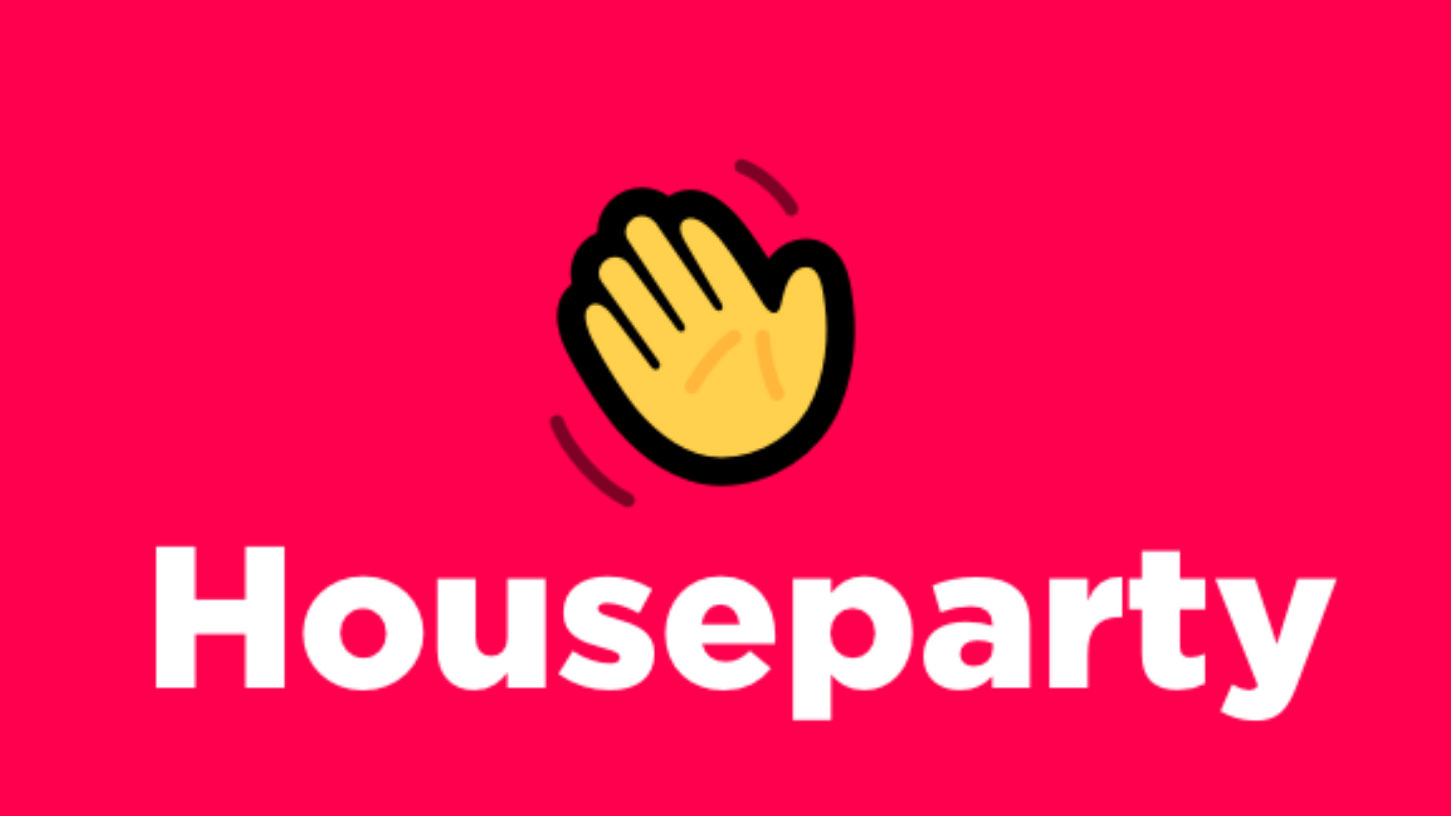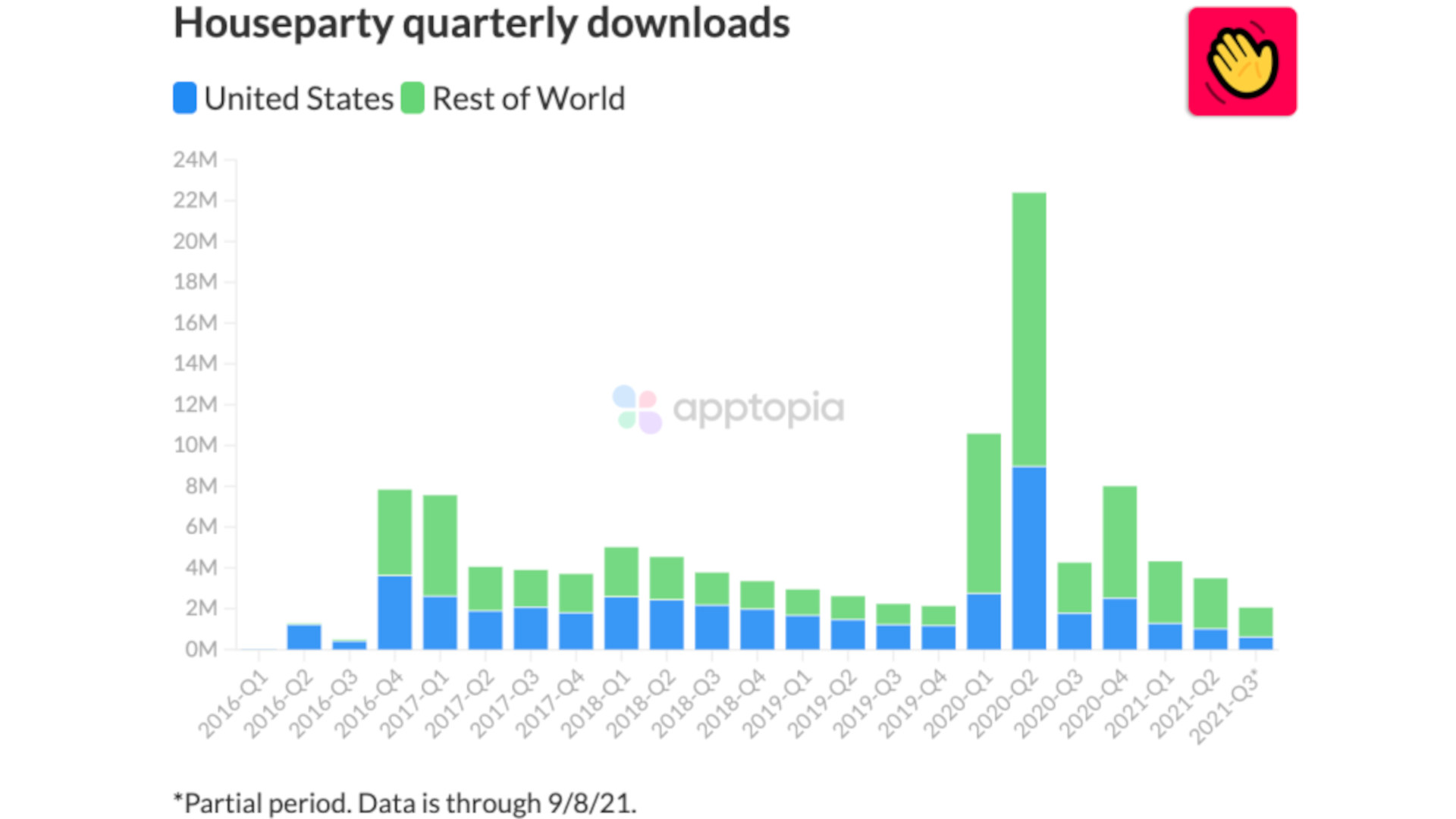Party's over for Houseparty as Epic Games announces imminent shutdown
Everyone out!

Remember Houseparty? The social app that allowed you to play games with friends in a video chatroom gained almost overnight popularity at the height of the Covid-19 pandemic as a means for people to keep in touch, motivating Fortnite maker Epic Games to purchase the app for $35 million back in 2019.
As it turns out, that investment may have been short-lived as an Epic Games representative has informed TechCrunch that it plans to shut the app down in October of this year, including its 'Fortnite Mode' feature.
The application is being removed from app stores with immediate effect, though Epic has stated that people who already have Houseparty downloaded can continue to use it until service is terminated. Epic has also stressed that nobody on the Houseparty team will lose their job, claiming they will be assigned to other teams to develop social interactions across the Epic Games family of products.
- How to delete Houseparty
- Is the future of online events in the metaverse?
- Fortnite skins September 2021: All the skins coming to Fortnite
The afterparty
Houseparty rapidly became a favorite chat app among folks staying inside during the height of the pandemic, with an average of over 2 million people downloads per week during March 2020, and faced what was attributed as a targeted smear campaign within the same month, leading Epic Games to offer a reward of $1 million to anyone who could provide proof of sabotage. Epic Games stated at the time that the application is secure and was never compromised, claiming that there was no evidence of the app interfering or hacking other applications that are already installed on the phone.
This didn't prevent appeals to uninstall the app from going viral on social media after several users tweeted that installing the Houseparty app resulted in them being locked out of other apps such as Spotify and Snapchat.
It's unclear if this smear campaign is directly connected to the app closure, and Epic has offered no insight into its decision other than to claim that the Houseparty team could no longer give the app the attention it required, despite support for live streaming being integrated into the app less than six months ago.
Analysis: The pandemic is over... kind of

According to data from Apptopia, Houseparty has been continually declining since it hit peak downloads back in May 2020, likely due to a combination of other apps like Clubhouse, Zoom and Facebook Messenger Rooms gaining some ground. But there's also the likelihood that people are more willing to go out and socialize in person with family or friends when compared to various global lockdowns last year.
Sign up for breaking news, reviews, opinion, top tech deals, and more.
If we look at the case rates for Covid-19 it's very apparent that we're not in the clear just yet, but the demand for apps like Zoom is fading and that drop is being attributed to a lack of demand in a post-pandemic world. As physical events return, people are keen to return to 'normal' after almost two years of living in a socially distance society.
A lack of demand for a service is typically why it would be shut down – after all, if it was making money then chances are they would have continued development and support, but it does appear that Epic has plans to implement social features into the wider metaverse it's building.
Fortnite has hosted live events such as concerts from popular artists like Marshmello, Ariana Grande and Travis Scott, something that shows its evolution beyond just being a video game and more of an interactive online experience. The demise of Houseparty is unsurprising, but future developments from the team into Epic's other projects are worth keeping an eye on if Fortnite's experiential portfolio is anything to go by.

Jess is a former TechRadar Computing writer, where she covered all aspects of Mac and PC hardware, including PC gaming and peripherals. She has been interviewed as an industry expert for the BBC, and while her educational background was in prosthetics and model-making, her true love is in tech and she has built numerous desktop computers over the last 10 years for gaming and content creation. Jess is now a journalist at The Verge.